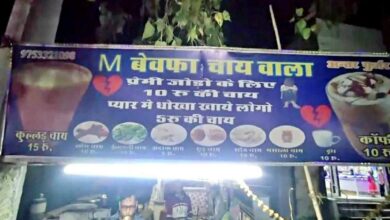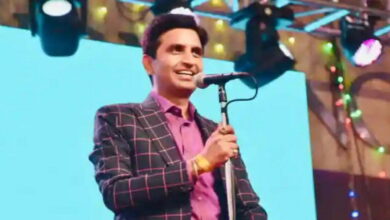Everyone’s responsibility to stop inflation

The inflation based on the Wholesale Price Index stood at 14.55 per cent in the month of March and the inflation rate based on the Consumer Price Index i.e. retail inflation stood at 6.95 per cent in the same period. Wholesale inflation has been in double digits for the last one full year and retail inflation has been above the Reserve Bank’s fixed ceiling for the last three months. Even if someone does not know this figure, he still knows that inflation has increased a lot. Even the smallest necessities of life have become expensive.
The rise in fuel prices has made freight costlier and its impact is visible on everything. Food and drink have become extremely expensive. There has been a huge increase in the price of manufactured goods. Traveling has become a very costly affair, so buying clothes is also getting out of reach of the people. In this month alone, the price of cement has increased by Rs 70 a ton and the price of steel has doubled to Rs 80,000 a ton in the last one year.
The worrying thing about inflation is that it is not going to stop at that point. Petrol is being sold almost all over the country at a price of more than a hundred rupees a liter and the price of diesel has also gone up to a hundred rupees a liter. The price of CNG has increased by more than Rs 10 a kg in the last one month and has reached Rs 72 a kg in Delhi. The cost of domestic cylinder of LPG has gone up to one thousand and that of commercial cylinder is above two thousand. Until a few days ago, it could not even be imagined. But it just isn’t. There is no guarantee that the prices will stay even at this point. From above, wetting the flour in the pauper is that the GST Council is going to change the rates of Goods and Services Tax. A committee has recommended this, according to which the tax slab of five percent will be abolished. For some of its items, a slab of three per cent will be made and all other items will be put in the slab of eight per cent.
This decision is likely to be approved in the meeting of the GST Council, chaired by the Union Finance Minister, to be held in May. If this change takes place, then most of the items which were considered as necessities for everyday use of citizens and were taxed at five per cent, would attract eight per cent tax. In this way, the price of these items will increase by three percent. The committee, which changes the tax structure, estimates that by increasing the tax of these items by three percent, the governments will get additional revenue of 1.5 lakh crore rupees. ,
Think, from whose pockets this 1.5 lakh crore rupees will come out? GST i.e. indirect tax is that tax, which every common and special citizen has to pay. This means that 1.5 lakh crore rupees will come out of the pockets of the common people. Keep in mind that already people are paying about 14 lakh crore rupees every year from GST in the form of indirect tax. From above this one and a half lakh crore rupees will come out of their pocket. About Rs 13 lakh crore is received in the form of direct tax and lakhs of crores of rupees are received separately from tax on petrol-diesel, excise etc.
Now the question is, whose responsibility is it to control this? Is only the central government responsible for this inflation and controlling it will bring down the prices? There is no doubt that the central government has a big role to play as a major part of the tax on fuel goes to the Centre. But the state governments are also no less responsible for this. For example, on one liter of petrol, the Government of India currently charges about Rs 28 as excise duty. This is equivalent to 50 per cent of the cost of one liter of petrol without tax. Similarly, the state governments also charge 30 to 50 percent on one liter of petrol. Its rate is different in different states. In Maharashtra, the state government charges Rs 30 tax on one liter of petrol. In Andhra Pradesh 29 rupees and in Madhya Pradesh about 27 rupees per liter tax is charged. That is, the governments of the Center and the states together charge a tax equal to or more than the price of petrol. So, if it is to be reduced effectively so that the common people get clear benefits from it, then both the central and state governments will have to reduce their respective taxes. The general public is not going to get relief just by blaming each other.
Similarly, the central government alone is not a part of GST. According to the recommendations of the 15th Finance Commission, 41 percent of the total GST is to be given to the states. That is, if one hundred rupees is being collected under the head of GST, then 41 rupees of it goes to the account of the states. Now if the GST Council wants to change the tax structure and wants to put most of the items in the slab of five percent in the slab of eight percent, then all the states will also agree in it. Actually the state governments are worried about the GST revenue. The provision of compensation expires in June this year. For five years after the implementation of GST, there was a provision that if the collection of tax falls short or does not increase at the rate of 14 per cent per annum, then it will be compensated by the central government. Now five years of GST are being completed and this provision is coming to an end. Therefore, the state governments are concerned about the lack of revenue and want the tax slab to be changed to increase the revenue.
The two main factors of inflation – the cost of fuel and indirect taxes, are also included in the share of the states. If the states sincerely want that the common people should get relief, then they will have to cut the tax themselves and also put pressure on the Center to cut the tax. If the opposition parties want, the decision to increase the rate of GST can be postponed and fuel prices can also come down. So making sporadic statements or targeting the Center will not bring down prices.






